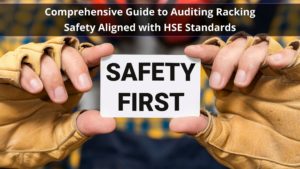
Since HSE inception forty years ago, their role has changed a lot, and nowhere is that more true with their involvement in the safety of schools.
When HSE was first born, in the aftermath of the Flixborough, it was a bold piece of legislation designed to make workplaces safer, but that was never designed to its only role. It’s important to remember that the original name of the act that allowed for the birth of HSE was the “Health and Safety at Work etc Act 1974”. That “etc” embodies one of the most important aspects of HSE, which is that, though a safe workplace is vital, the government should also step in to ensure the safety of other public spaces as well.
And so it is that HSE has entered into our schools as well. The result of this has been overwhelmingly positive. No-one would argue that HSE’s continued campaign to remove asbestos from school buildings is a bad thing. It’s a perfect example of why we need HSE. The invisible hand of the market alone cannot effectively clean up the asbestos disaster on its own, and we need someone to step up and tackle the issue head on. HSE was created for precisely this sort of job.
“Now HSE Want to Ban…”
We should rejoice that we live in a country which is so safe that mocking HSE for being “too safe” counts as a news story. You’ve probably heard some outrageous claims about HSE’s involvement in schools, but these claims are usually exaggerated, taken wildly out of context, or not a result of HSE but a decision made by the school itself.
Do HSE want to ban children playing conkers in schools? No, they do not. Do HSE want to ban playing pin the tail on the donkey in schools? Nope, guess again. Do HSE want to ban school ties? Not right this time either. The list goes on and on, and HSE are tirelessly releasing myth-busting statements every month.
HSE Just Want What is Best For School Children
However, sometimes myth-busting is not enough. Recently, HSE’s chief, Dame Judith Hackitt spoke out about HSE’s reputation. She argued that the over-zealous attitude some schools have towards health and safety runs a risk of making a mockery out of genuine health and safety legislation. HSE’s role in schools is important, but if their voice is drown out by “overprotective parents and risk-averse teachers” then students will grow up thinking that health and safety is some kind of joke.
We are lucky enough to live in a country where children are so well protected from the dangers of their school that health and safety does seem like a joke to them. Students are only able to feel this way because their schools are much safer than schools were before the creation of HSE. Those same children will grow up to have jobs in workplaces where rates of fatal injury have fallen by an enormous 86 percent since the creation of HSE.
Racking Inspection Training Means Continuing HSE’s Quest to Educate
HSE’s role in British schools makes a lot more sense when you consider that the aim of any health and safety legislation, health and safety training, or health and safety press release is to educate. Teaching people how to be safe around pallet racking goes hand in hand with teaching people how to use pallet racking, and this is why pallet racking inspection training is so important.
At Storage Equipment Experts, education is at the core of what we do. Our racking inspections and racking inspection training is very much in line with HSE’s belief that health and safety is essentially a matter of teaching people how to be safe. Fines and the laws are an important enforcement tool, but education is at the core of what we do.
HSE recommend expert racking inspections because they know how important a well-educated opinion on safety is. HSE’s continued involvement in schools and continued involvement in the warehouse industry is about creating the same thing: a safer and more intelligent workforce for the future.
School yourself in the basics of racking inspection and racking safety with our free racking inspection checklist.
Better yet, contact us for expert racking inspection training from a SEMA approved racking inspector.





